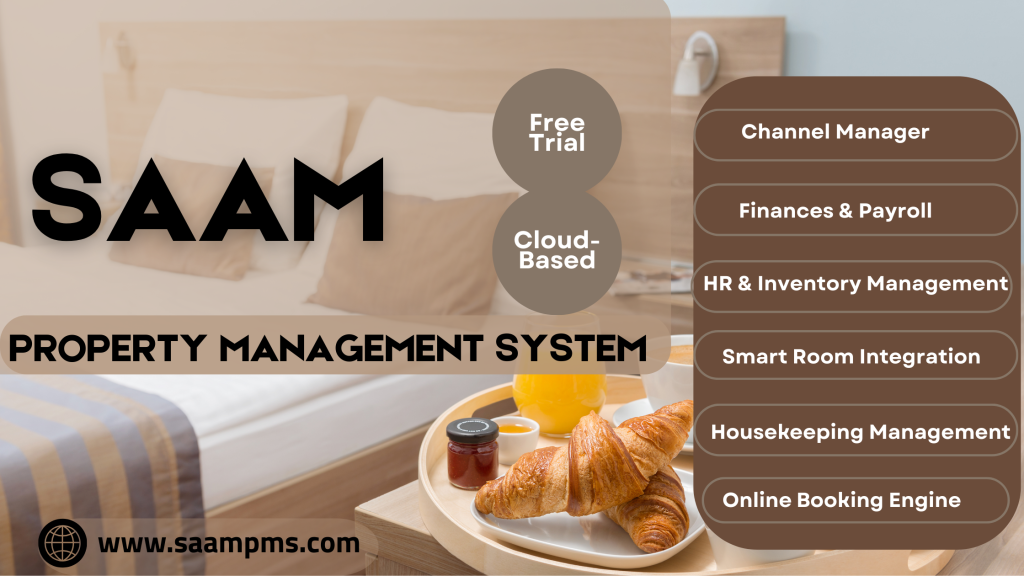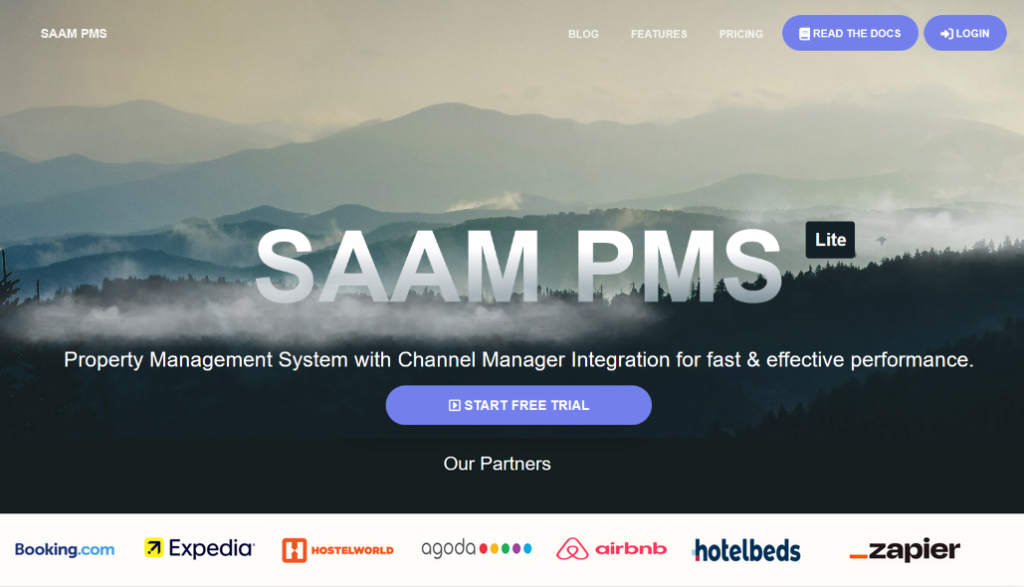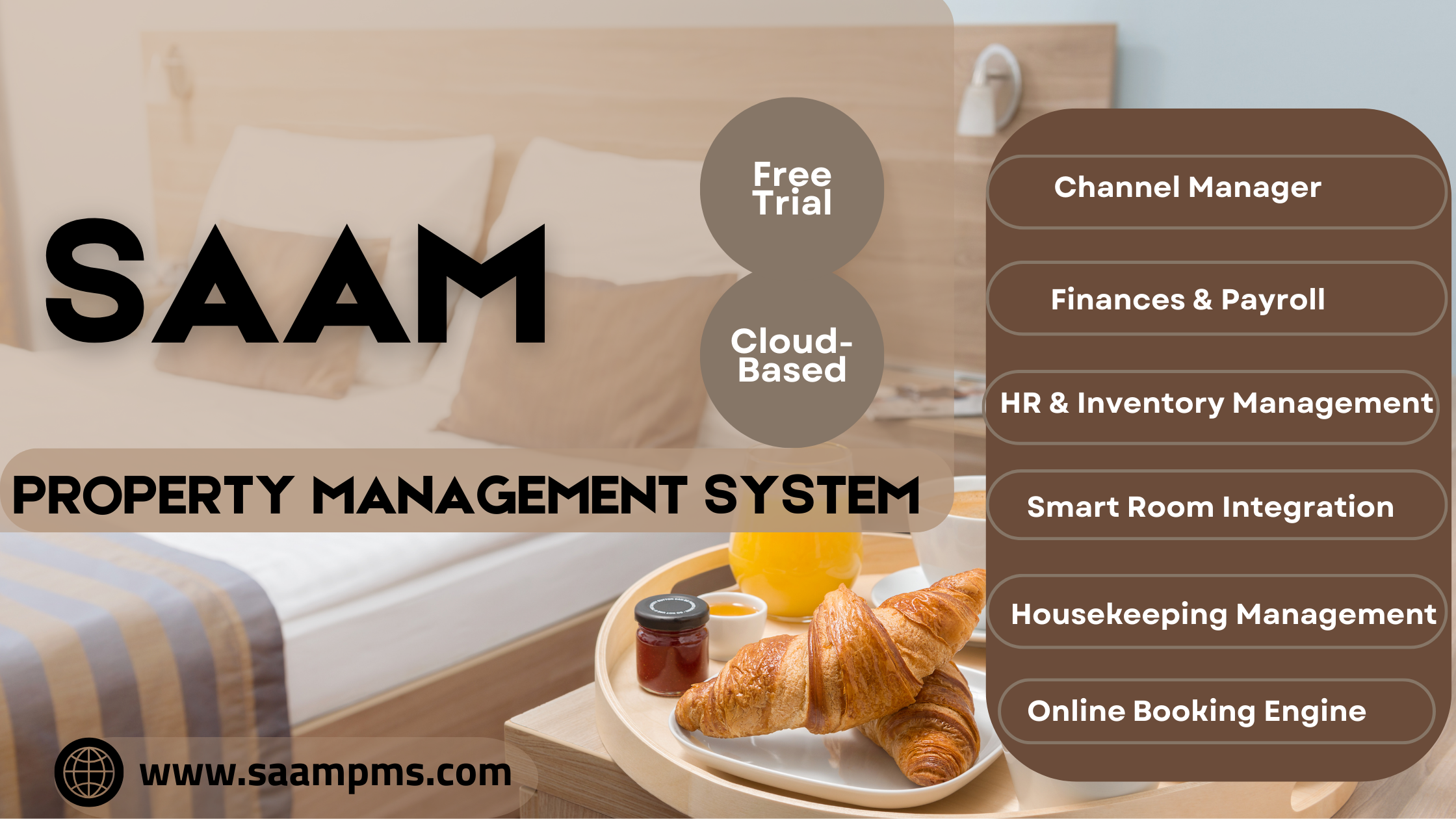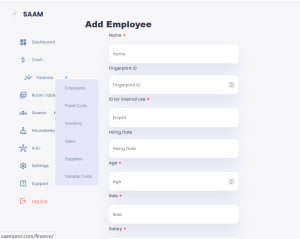Advantages Of Cloud Based Hotel Management System
In today’s fast-paced hospitality industry, staying ahead is crucial. A cloud-based hotel management system can be a game changer, offering numerous advantages over traditional systems.
These systems provide real-time access to data from anywhere, enhancing decision-making and operational efficiency. Hotel owners and managers can benefit greatly from this technology.
Cloud solutions significantly reduce IT costs by eliminating the need for on-premises servers and maintenance. This allows hotels to allocate resources more effectively.
Moreover, cloud systems improve guest experiences by streamlining check-in and check-out processes. Personalized services become easier to deliver.
In this article, we will explore the key benefits of adopting a cloud-based hotel management system. Discover how it can transform your hotel operations.
What is a Cloud Based Hotel Management System ?
A cloud-based hotel management system is a digital platform hosted online. It allows hotels to manage operations without on-site servers. This approach streamlines processes and reduces IT infrastructure costs.
These systems provide centralized tools to handle various hotel functions. From bookings to housekeeping, everything is integrated. This results in a more efficient and organized workflow for hotel staff.
Key features typically include:
- Real-time data management
- Mobile accessibility
- Seamless integration with other systems
By leveraging cloud technology, hotels can offer improved services. Guests enjoy faster and more personalized experiences. Ultimately, this system helps hotels become more competitive.
Key Advantages of Cloud-Based Hotel Management Systems

Cloud-based hotel management systems transform operational efficiency. They offer numerous benefits that streamline hotel operations, making them increasingly popular in the hospitality industry.
Hotels can access real-time data and analytics, helping managers make informed decisions quickly. They can also monitor bookings, inventory, and customer feedback with ease.
Benefits include:
- Lower IT costs
- Better guest experience
- Enhanced data security
The flexibility these systems provide is unmatched. Whether it’s a small boutique hotel or a large chain, cloud solutions can fit every need.
Implementing a cloud system can boost a hotel’s market competitiveness. Moreover, it adapts quickly to changes, ensuring businesses stay ahead. Ultimately, this versatility is key to growth and long-term success.
1.Real-Time Access and Mobility
In addition, cloud systems offer real-time data access. As a result, managers can view operations from anywhere. Whether on a smartphone or a laptop, information is always just a click away.
Managers can track room availability and booking instantly.This access ensures they respond swiftly to market changes.
Advantages include:
- Increase decision -making speed
- Enhanced flexibility in operations
- Improved staff coordination
Such mobility empowers staff to deliver quality service. With everything at their fingertips, guest needs are met promptly. As a result, overall satisfaction improves significantly.
2.Cost Savings and Reduced IT Burden
Cloud-based systems eliminate traditional IT maintenance. Since there is no need for expensive on-site servers, infrastructure costs are greatly reduced.
In addition, hotels save on both hardware and staffing expenses, as the cloud provider manages updates and maintenance.
Key benefits include:
- Lower technology investments
- Decreased IT staffing needs
- Automatic system updates
By reducing the IT burden, hotels can redirect resources elsewhere. Consequently, they are able to invest more into enhancing guest services. This strategic shift not only improves efficiency but also fosters growth and innovation.
3.Enhanced Security and Data Protection
Sensitive guest information is safeguarded against breaches. In fact, cloud providers prioritize strong security measures to protect hotel data.
Security features include:
Security is crucial for any hotel. That’s why cloud solutions offer robust data protection. This includes advanced encryption and regular backups to safeguard sensitive information.
- Advanced encryption protocols
- Regular data backups
- Continuous security patches
These systems support compliance with industry standards. As a result, hotels can confidently ensure guest data remains safe. In turn, this trust enhances the overall reputation of the property.
4.Seamless Integration with Other Hospitality Management Software
Cloud systems easily integrate with existing software. This means all operations remain synchronized. From CRM tools to payment gateways, everything connects seamlessly, ensuring efficiency across the hotel’s operations.
Inter connected systems streamline processes significantly
Integration helps avoid data entry errors and duplication.
Key benefits of integration include:
- Unified data management
- Enhanced operational workflows
- Simplified reporting and analytics
As a result, this level of integration saves time and reduces errors. Moreover, it provides a comprehensive overview of all hotel operations. Ultimately, efficient management leads to better decision-making and improved performance.
5.Improved Guest Experience and Service Delivery
A cloud-based system elevates guest interactions. With faster check-ins and personalized services, hotels create lasting impressions. In addition, technology supports staff in anticipating guest needs, ensuring a more seamless and satisfying stay.
Personalization enhances loyalty and encourages repeat visits.Guests appreciate smooth,efficient service delivery.
Guest service improvements include:
- Faster check-in/check -out processes
- Personalized guest experiences
- Proactive service delivery
Offering exceptional guest experiences boosts online reputation.Positive reviews attract new customers.It’s a win-win for both staff and guests.
6.Scalability and Flexibility for Growing Hotels
Scaling with demand is vital for hotel success.Cloud systems offer flexibility
Scalability benefits include:
- Dynamic resource allocation
- Cost-effective operation scaling
- Adaptability to market trends
For growing establishments,this flexibility is essential.Hotel scan respond to changes without overhauls.This capability supports sustainable long-term growth.
How Cloud Management Tools Drive Hotel Efficiency
Cloud management tools enhance hotel efficiency through automation.This educes manual workloads and potential for errors,freeing up staff to focus on guest relations.
By integrating various functions,these tools ensure smooth operation.They aid in inventory management,rate adjustments,and guest interaction.
Key efficiency improvements include:
- Task automation
- Data synchronization
- Real-time communication
Choosing the Right Cloud Based Hotel Management System
Selecting the right system is crucial for a hotel’s success.Start by assessing your specific needs and challenges.
Consider important features like:
- Integration capabilities
- User-friendliness
- Cost-effectiveness
Ensure the system aligns with your business goals.Research for a solution that scales with your growth.The right choice will enhance your operations significantly.
Why SAAM Property Management System
SAAM is a Cloud-Based management system offers you all the powerful tools you need to manage your property and even more it offers you free trial to choose your plan that covers all your needs !

SAAM features includes :
- Online Booking Engine: Allows guests to book rooms directly on the hotel’s website, displaying real-time availability and rates.
- Channel Management: Connects to various online travel agencies (OTAs) and other distribution channels to manage inventory and bookings across different platforms.
- Reservation Management: Handles bookings, modifications, cancellations
- Guest Profiles: Stores guest information and preferences for personalized service and repeat business.
- Check-in/Check-out: Streamlines the process of guest arrival and departure.
- Communication: Facilitates communication with guests through various channels.
- Loyalty Programs: Integrates with loyalty programs to manage rewards and special offers.
- Front disk operations : Manages room assignments, guest requests, and other front desk tasks.
- House keeping management : Tracks room cleaning status and schedules housekeeping tasks.
- Inventory Management: Manages room availability, amenities, and other resources.
- Reporting and Analytics: Generates reports on bookings, revenue, occupancy, and other key performance indicators.
- Integration with Other Systems: Connects with channel managers,Zapier, and other software systems.
- Multi-Property Support: Enables management of multiple hotels or properties from a single system.
- Finances and Human Resources Management :cash registration with your chosen authorized employees and employees payroll and attendance tracking
Conclusion: The Future of Hospitality Management
The hospitality industry is rapidly evolving with technology. In this context, a cloud-based hotel management system offers immense benefits for hotels aiming to improve efficiency.
Moreover, adopting these systems ensures competitiveness and enhances service quality. By investing in cloud solutions, hotels position themselves for long-term success and sustainable growth in a tech-driven landscape.
Ultimately, staying ahead in hospitality means embracing the digital future—starting now.




